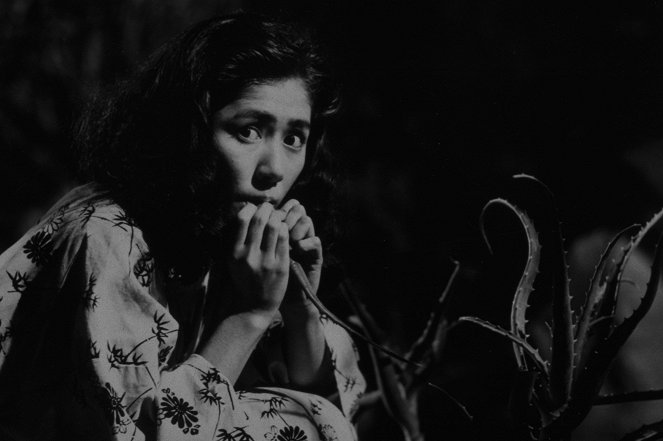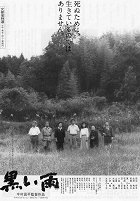Regie:
Shôhei ImamuraKamera:
Takashi KawamataMusik:
Tôru TakemitsuBesetzung:
Yoshiko Tanaka, Kazuo Kitamura, Etsuko Ichihara, Norihei Miki, Akiji Kobayashi, Taiji Tonoyama, Shôichi Ozawa, 石丸謙二郎, 大滝秀治, 河原さぶ, 白川和子, Rikiya Yasuoka (mehr)Inhalte(1)
Ein japanisches Dorf in der Nähe Hiroshimas im Jahre 1950: Der Schock des Atombombenabwurfs sitzt tief. Verbissen versucht ein alter Mann, seine Nichte zu verheiraten, die als Strahlenopfer gilt und darum gemieden wird. Hiroshima, am 6. August 1945 um 8.14 Uhr: Auf der Stadt liegt eine schwere Hitze. Plötzlich erscheint ein mächtiger, blendender Blitz, gefolgt von einem zerstörerischen Sturm, der in wenigen Sekunden die ganze Region verwüstet. Die erste Atombombe der Geschichte ist auf dem japanischen Archipel explodiert. Die 20-jährige Yasuko erlebt die Katastrophe aus sicherer Entfernung. Doch dann eilt sie in die zerstörte und verstrahlte Stadt, um ihre geliebten Pflegeeltern – ihren Onkel und ihre Tante – zu suchen. Dabei gerät sie an Bord einer Fähre in einen schwarzen, öligen Regen, der radioaktiv verseucht ist und sich nicht abwaschen lässt. Entkräftet findet sie schließlich ihre Verwandten, die das Unglück lebend überstanden haben, in deren halb zerstörter Wohnung. Gemeinsam fliehen die drei, die sich nicht erklären können, was geschehen ist, aus den Trümmern Hiroshimas. Fünf Jahre später: Yasuko lebt mit ihrem Onkel und ihrer Tante, die beide an der Strahlenkrankheit leiden, in einem kleinen Dorf, umgeben von einer – scheinbar – intakten Natur. Da Yasuko im heiratsfähigen Alter ist, bemüht sich ihr Onkel, einen Ehemann für seine schöne Nichte zu finden. Aber die Gerüchte, dass Yasuko Jahre zuvor am Ort der Tragödie gewesen sei, sorgen für Komplikationen: Trotz ärztlichem Gesundheitszeugnis ist niemand bereit, Yasuko zu heiraten. Dann wird ihr plötzlich doch noch Solidarität und Freundschaft entgegengebracht – von einem Menschen, mit dem Yasuko nicht gerechnet hätte. (arte)
(mehr)Kritiken (2)
Honestly, what intrigued me most about the film is the fact that even though I imagined Hiroshima as a vast area where nothing exists, people proved to be like cockroaches. They can survive pretty much anywhere, although, of course, the conditions are not ideal. It just makes dying a lot more uncomfortable.
()
My first encounter with renowned Japanese director Shohei Imamura didn't go badly, but it only reaffirmed my traditional reservations about East Asian productions. It's that light overacting and emotional distinctiveness that alienates me from a significant part of these productions. The director used black and white material and deliberately tried to create a film that seemed to have originated in the 1950s when the story takes place. The explosion of the nuclear bomb is depicted in flashbacks and only a relatively small part of the film is dedicated to it. The crucial focus is on the description of the suffering and dying of the affected individuals years after the explosion. Imamura shows that the survivors had to face not only physical disability but also social ostracism. The main protagonist is a girl who practically cannot get married in Japanese society because she carries the stigma of a radiation-affected person with deteriorating health. Given the theme and execution, it is quite logical that the film received a decent response at festivals and can be considered a quality attempt to come to terms with this Japanese trauma. It is an intimate affair that is somewhat dragged out but with emotionally impactful moments throughout. The scene where an affected man describes how he left his small son, whom he couldn't rescue from the rubble to the approaching fire, is simply chilling. Overall impression: 75%.
()
Galerie (26)
Photo © Les Bookmakers


Werbung